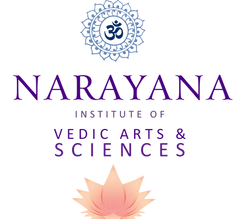Understanding the Healing Power of Indian Head Massage
- Monica B Groover

- Jul 28, 2025
- 3 min read
Updated: Nov 25, 2025
The Benefits of Shiro Abhyanga
Indian Head Massage, also known as Shiro Abhyanga, offers numerous benefits beyond just promoting healthy hair. It supports conditions such as insomnia, anxiety, and general aches and pains. In Traditional Chinese Medicine (TCM) and other modalities, foot massage is said to benefit the entire body. However, in Vedic massage and Ayurveda, the focus begins with the head.
Ayurveda employs high-quality organic and cold-pressed oils mixed with herbs. The choice of oil, known as tailam, is crucial and is often customized based on the individual's Dosha constitution (Prakriti), their current imbalances (Vikriti), the season, and the specific health concerns being addressed.
Common Base Oils for Shiro Abhyanga
Here are some common base oils and medicated (herbal-infused) oils used for Shiro Abhyanga, along with their general indications:
1. Base Oils (Often Used Alone or as Carriers for Herbs)

Sesame Oil (Tila Taila):
- Qualities: Warming, heavy, nourishing, deeply penetrating. Not recommended for summer, but can be mixed with cooling herbs or essential oils for a Vata imbalance.
- Indications: Excellent for Vata Dosha imbalances such as dryness, anxiety, insomnia, restlessness, and hair fall due to dryness. It's considered Tridoshic (balancing for all three Doshas) when used correctly, making it a universal choice.
Coconut Oil (Narikela Taila/Kera Taila):
- Qualities: Cooling and light. The best base oil for the heat of summer.
- Indications: Ideal for Pitta Dosha imbalances like irritability, burning sensations on the scalp, premature graying, and hair fall due to heat. It's particularly beneficial in hot climates.
Almond Oil:
- Qualities: Warming and nourishing.
- Indications: Good for Vata Dosha, nourishing for hair and scalp, and can help with dryness and hair fall.
2. Medicated/Herbal Oils (Tailams)
These oils are infused with specific Ayurvedic herbs to enhance their therapeutic properties for the head, hair, and nervous system. Some of the most commonly used and highly regarded Ayurvedic oils for Shiro Abhyanga include:
Calendula Oil:
Calendula, or marigold, is naturally considered anti-inflammatory, antifungal, and a natural antiseptic according to herbalists. Calendula flowers are mentioned in the pushpa varga category in the ancient Ayurvedic text called Bhava Prakasha. Below is a video of a Vedic Herbalist and Ayurveda Practitioner, Monica Groover, creating an Ayurvedic oil with calendula at home.
--wix--{"type":"VIDEO","id":"xqify60963","nodes":[],"videoData":{"containerData":{"width":{"size":"CONTENT"},"alignment":"CENTER","textWrap":true},"video":{"src":{"url":"https://youtu.be/nAjbESTB_f4"},"duration":78},"thumbnail":{"src":{"url":"https://i.ytimg.com/vi/nAjbESTB_f4/sddefault.jpg"},"width":640,"height":480},"title":"Make calendula oil at home"}}--wix--
Brahmi Taila:
- Key Herb: Brahmi (Bacopa monnieri).
- Benefits: Renowned for calming the mind, improving memory and concentration, reducing anxiety and stress, promoting sound sleep, and enhancing mental clarity. It's often Pitta-pacifying.
Bhringraj Taila (or Bhringamalakadi Taila / Nilibhringadi Kera Taila):
- Key Herb: Bhringraj (Eclipta prostrata), often combined with Amalaki (Indian Gooseberry) and sometimes Neeli (Indigo).
- Benefits: Known as the "King of herbs for hair." It promotes hair growth, prevents hair fall, reduces premature graying, treats dandruff, and nourishes the scalp. Generally good for balancing Pitta and Vata.
Chandanadi Taila:
- Key Herb: Chandana (Sandalwood).
- Benefits: Cooling and calming, excellent for Pitta imbalances leading to irritability, burning sensations, and headaches.
Triphaladi Taila:
- Key Herbs: Triphala (a combination of Amalaki, Haritaki, and Bibhitaki).
- Benefits: A balancing oil good for Kapha imbalances, helping cleanse and strengthen hair while supporting scalp health.
Ashwagandhadi Taila:
- Key Herb: Ashwagandha (Withania somnifera).
- Benefits: An adaptogen that is highly nourishing. It helps reduce stress, anxiety, and fatigue while promoting restful sleep. Good for Vata imbalances.
Book a Treatment or Consultation
Consult an Ayurvedic Practitioner: The best way to select the right oil is to consult a qualified Ayurvedic practitioner. They can assess your unique Dosha constitution (Prakriti) and current imbalances (Vikriti) to recommend the most suitable oil or blend. You can contact Monica Groover, the Ayurvedic Practitioner, and get a Zoom consultation starting from $50 online. You can DM me on whatsapp to book a consult or learn how to do a self head massage on yourself.
Conclusion
In conclusion, Indian Head Massage, or Shiro Abhyanga, is a powerful practice rooted in Ayurveda. It not only promotes hair health but also addresses various physical and mental health concerns. By using the right oils tailored to individual needs, one can experience the full benefits of this ancient therapy.
Disclaimer: Ayurveda is not recognized by the FDA and is regarded as a complementary and alternative therapy. Practitioners of Ayurveda are not permitted to treat, cure, or prevent diseases. The information in this article is intended for educational purposes and is derived from ancient Ayurvedic texts written millennia ago.


















Comments